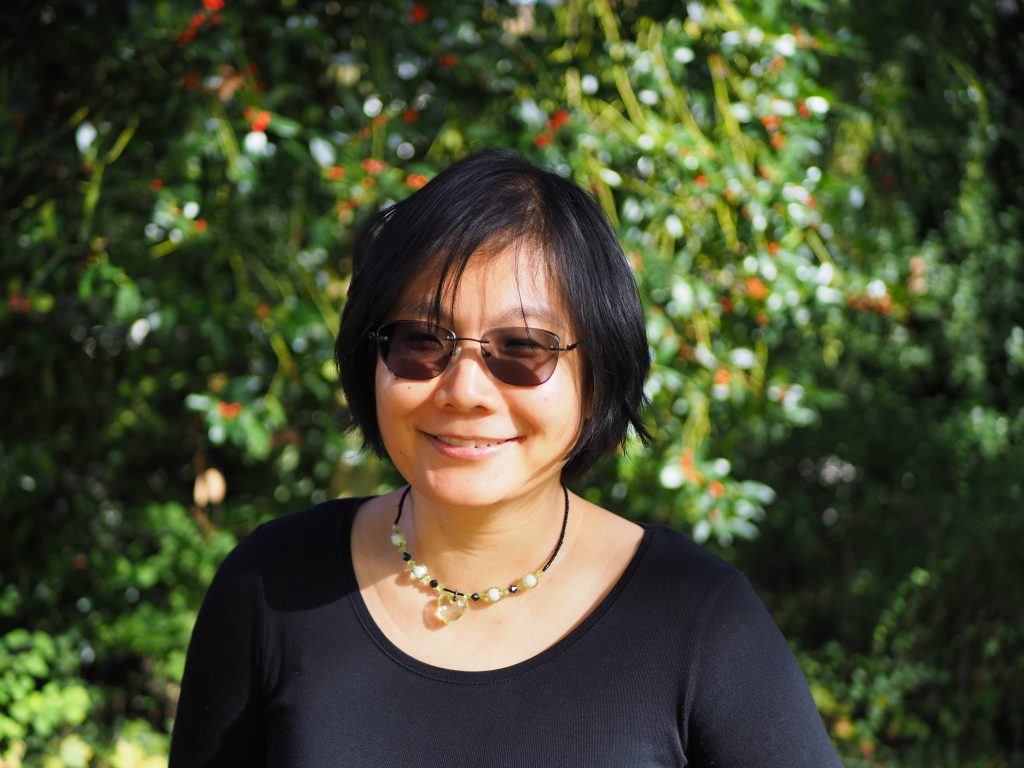c:o/re Junior Fellow 10/22 − 09/23

Clarissa Ai Ling Lee was a senior lecturer with the Faculty of Creative Arts at the University of Malaya, Kuala Lumpur, Malaysia, with research specialization at the intersection of performance studies, design studies, science and technology studies, cultural studies, and digital media studies. Previously she has held research positions at the Institute of Malaysian and International Studies at the National University of Malaysia (UKM), the Jeffrey Sachs Center on Sustainable Development and Jeffrey Cheah Institute on Southeast Asia, both at Sunway University Malaysia. She has researched and published on diverse topics in STS ranging from Malaysia’s history in the physical/nuclear sciences, participatory-speculative design in policy development, digital infrastructures and social hacking, as well as epistemologies of artscience. She is presently working on her monograph, Speculative Technoscience, that proposes a review of scientific epistemology of the global south through the mediating concept of ‘science-like’ knowledge as contextualized by artscience and queer epistemologies.
From Technoscience to Science-Like: Digitalizing Climate Disasters in the Global South
Clarissa Ai Ling Lee’s research at the RWTH will focus on how climate disasters within the Southeast Asian context has always been transnational, further augmented by how social media platforms have become the tool for crowdsourcing ‘informal’ climate disaster data. These crowdsourced data come in varied forms and quality, and could not always be easily quantified, measured, and reproduced through formal scientific means. At the same time, such data are useful for delineating topographies of disaster patterns, analyzing the interaction between habitations and climate change, and acknowledging informational gaps in geographies where data collected through formalized scientific instruments are sparse.
The project will focus on unpacking the concept of ‘science-like’ knowledge circulating among communities of non-technical stakeholders directly and indirectly affected by such disasters, and then position them in contradistinction to scientific data collected by expert parties and agencies. Science-like knowledge represents the ‘informal’ repository of public knowledge and is complementary to the concepts of lay and interactional expertise. Science-like knowledge shares certain attributes with scientific knowledge in that they too have their own lexicon of knowledge practices involving observation, data collection, analyses, and generalizations that contain vocabularies parallel to that found in modern science and its knowledge methods but are bounded by different rules and epistemic strategies.
Case studies of disasters are chosen from various environmental events such as the most recent flash floods and cyclical haze, while juxtaposing them against a selection of parallel disaster events found in the other parts of Southeast Asia. Given that the focus of the project is on climate data social media, there will also be a focus on developments in algorithmic functions on such platforms due to the deployment of machine learning. AI and the evolution of its predictive practices on social media, including their impact upon the relationship between social media users and informational content, will also be explored.
Publications (selection)
Lee, Clarissa Ai Ling. “Diagramming ArtScience: Designing Speculations into Science and its Aesthetics.” Book chapter in Design and Science. London: Bloomsbury Academic Press. Forthcoming.
Lee, Clarissa Ai Ling. 2022. Artscience Through Fan-Fiction for Diversifying STEM Approaches in Participatory Learning. In American Behavioral Scientist. March. https://doi.org/10.1177/00027642221078511
Lee, Clariss Ai Ling. 2021. Artscience: A Curious Education. Adventure in Ideas. Petaling Jaya: Gerakbudaya Essentials.
Lee, Clarissa Ai Ling & Kerr, E. 2020. Trolls at the Polls: What Cyber Harassment, Online Political Activism, and Baiting Algorithms Can Show Us About the Rise and Fall of Pakatan Harapan (May 2018 – February 2020). In First Monday 25(6). https://doi.org/10.5210/fm.v25i6.10704
Lee, Clarissa Ai Ling. 2019. What Science Fiction Can Demonstrate. About Novelty in the Context of Discovery and Scientific Creativity. In Foundations of Science 24(4): 705-725.

